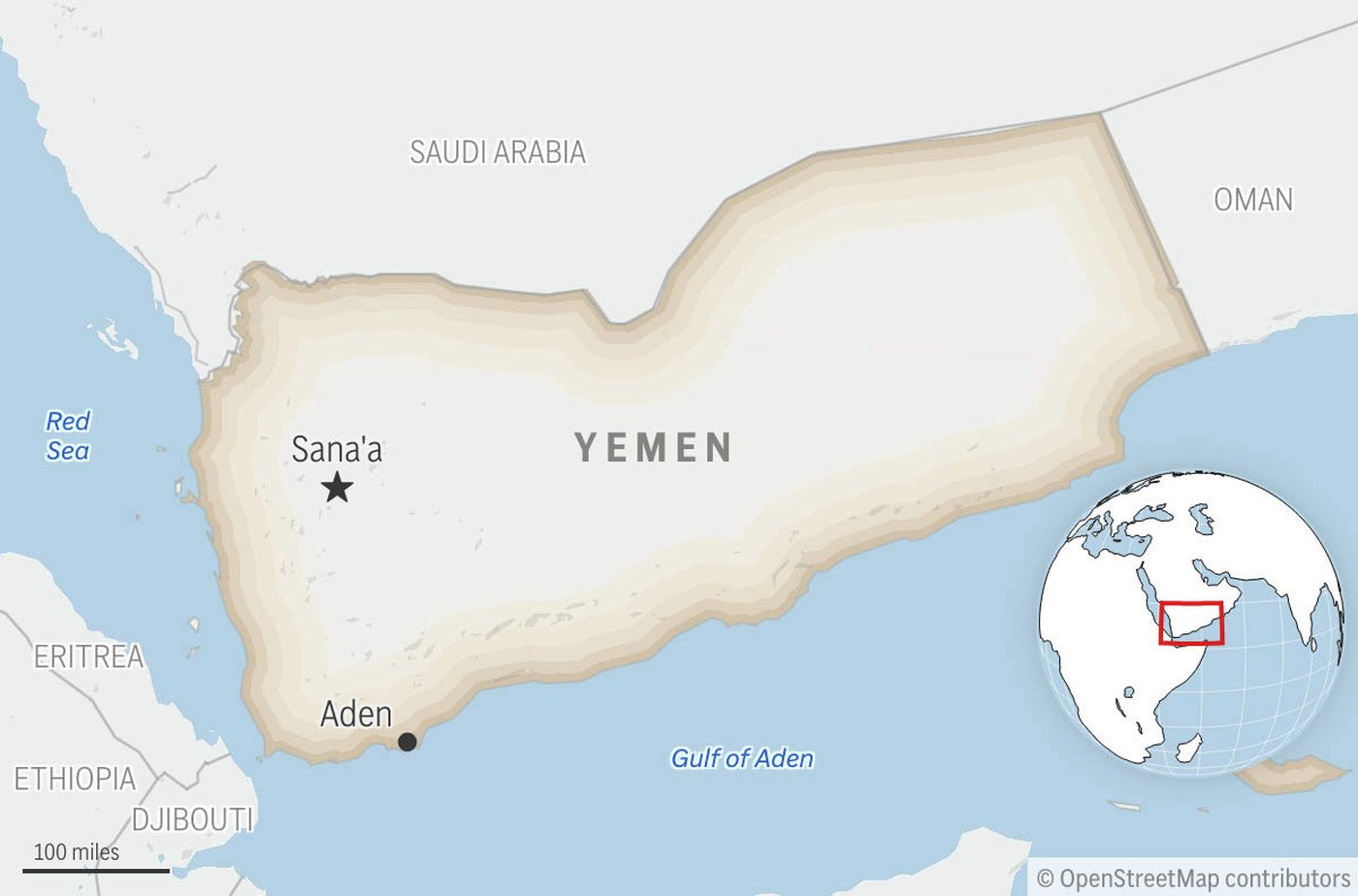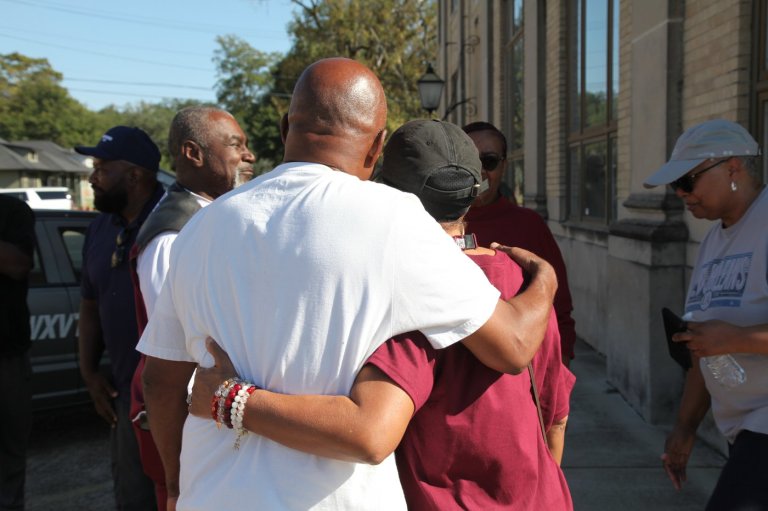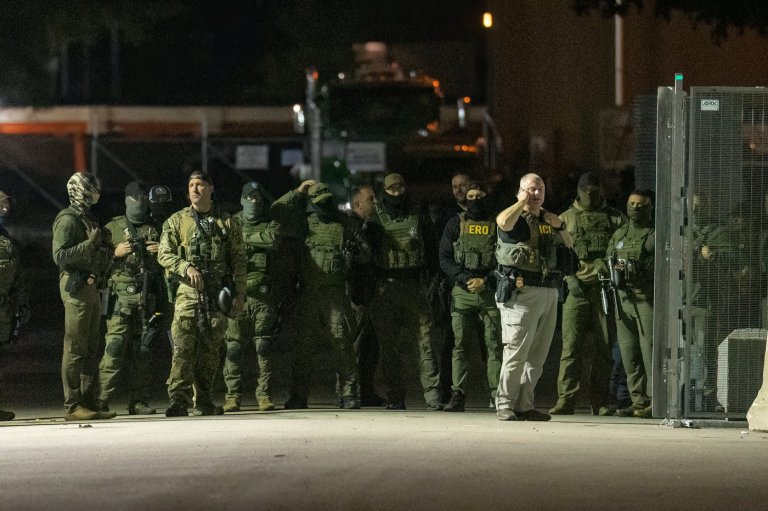
Chief of staff of Yemen Houthi rebel’s military dies from wounds suffered in Israeli airstrike
DUBAI, United Arab Emirates (AP) — An Israeli airstrike targeting the top leaders of Yemen’s Houthi rebels in August killed the chief of staff of its military, officials said Thursday, further escalating tensions between the group and Israel even as a ceasefire holds in the Gaza Strip.
The Houthis have acknowledged the killing of Maj. Gen. Muhammad Abdul Karim al-Ghamari, who had been sanctioned by the United Nations over his role in the country’s decadelong war.
Israeli Defense Minister Israel Katz claimed the killing, saying that al-Ghamari died of wounds he suffered in the attack and had joined “his fellow members of the axis of evil in the depths of hell.”
Katz referred to the strike as “the strike of the firstborn,” likely a reference to a series of strikes Israel conducted on Aug. 28. That attack killed Houthi Prime Minister Ahmed al-Rahawi and others. However, analysts suggested al-Ghamari may have been wounded in a different attack targeting the secretive group.
He was the highest-ranking official within the group to be killed by Israeli strikes that targeted the rebels over their attacks on Israel and shipping in the Red Sea corridor.
Prime Minister Benjamin Netanyahu also acknowledged Israel killing al-Ghamari.
“Another chief of staff in the line of terror chiefs who aimed to harm us was eliminated,” Netanyahu said. “We will reach all of them.”
Houthis offer few details
In a statement carried by the Houthi-controlled SABA news agency, the militants said al-Ghamari had been killed alongside his 13-year-old son Hussain and “several of his companions.” It did not elaborate on the date of the strike, nor did it identify the others killed in the strike.
“His pure soul ascended while he was in the course of his jihadi work,” SABA said.
The United Nations, in sanctioning al-Ghamari, described him as playing “the leading role in orchestrating the Houthis’ military efforts that are directly threatening the peace, security and stability of Yemen, as well as cross-border attacks against Saudi Arabia.”
The U.S. Treasury also said al-Ghamari was “responsible for orchestrating attacks by Houthi forces impacting Yemeni civilians” in sanctioning him in 2021. It described him as having received training from Lebanon’s Hezbollah militant group and Iran’s paramilitary Revolutionary Guard.
“As the head of the general staff of the Houthi armed forces, the most senior commander within the Houthi military leadership structure, al-Ghamari is directly responsible for overseeing Houthi military operations that have destroyed civilian infrastructure and Yemen’s neighbors,” specifically Saudi Arabia and the United Arab Emirates, the Treasury said at the time.
The Treasury listed his year of birth as either 1979 or 1984 at the time of his sanctioning. His other survivors weren’t immediately known.
Another SABA statement said al-Ghamari would be replaced by Maj. Gen. Yusuf Hassan al-Madani. He had been sanctioned at the same time as al-Ghamari by the U.S. over his work as “a prominent Houthi military leader” who commanded the rebels’ fifth military zone, including the key Red Sea port city of Hodeida.
Death comes as Gaza ceasefire takes hold
It remains unclear how the Houthis will respond. The group gained international prominence during the Israel-Hamas war over its attacks, which it said were aimed at forcing Israel to stop fighting. Since the ceasefire began Oct. 10, there has not been a Houthi attack targeting either Israel or shipping.
The Houthi campaign against shipping has killed at least nine mariners and seen four ships sunk. It upended shipping in the Red Sea, through which about $1 trillion of goods passed each year before the war. The rebels’ most recent attack hit the Dutch-flagged cargo ship Minervagracht on Sept. 29, killing one crew member on board and wounding another.
The Houthis meanwhile have increasingly threatened Saudi Arabia and taken workers at U.N. agencies and other aid groups as prisoners, alleging without evidence they were spies — something fiercely denied by the world body and others.
___
Associated Press writer Zvi Smith in Tel Aviv, Israel, contributed to this report.
Join the Conversation!
Want to share your thoughts, add context, or connect with others in your community?
You must be logged in to post a comment.


















